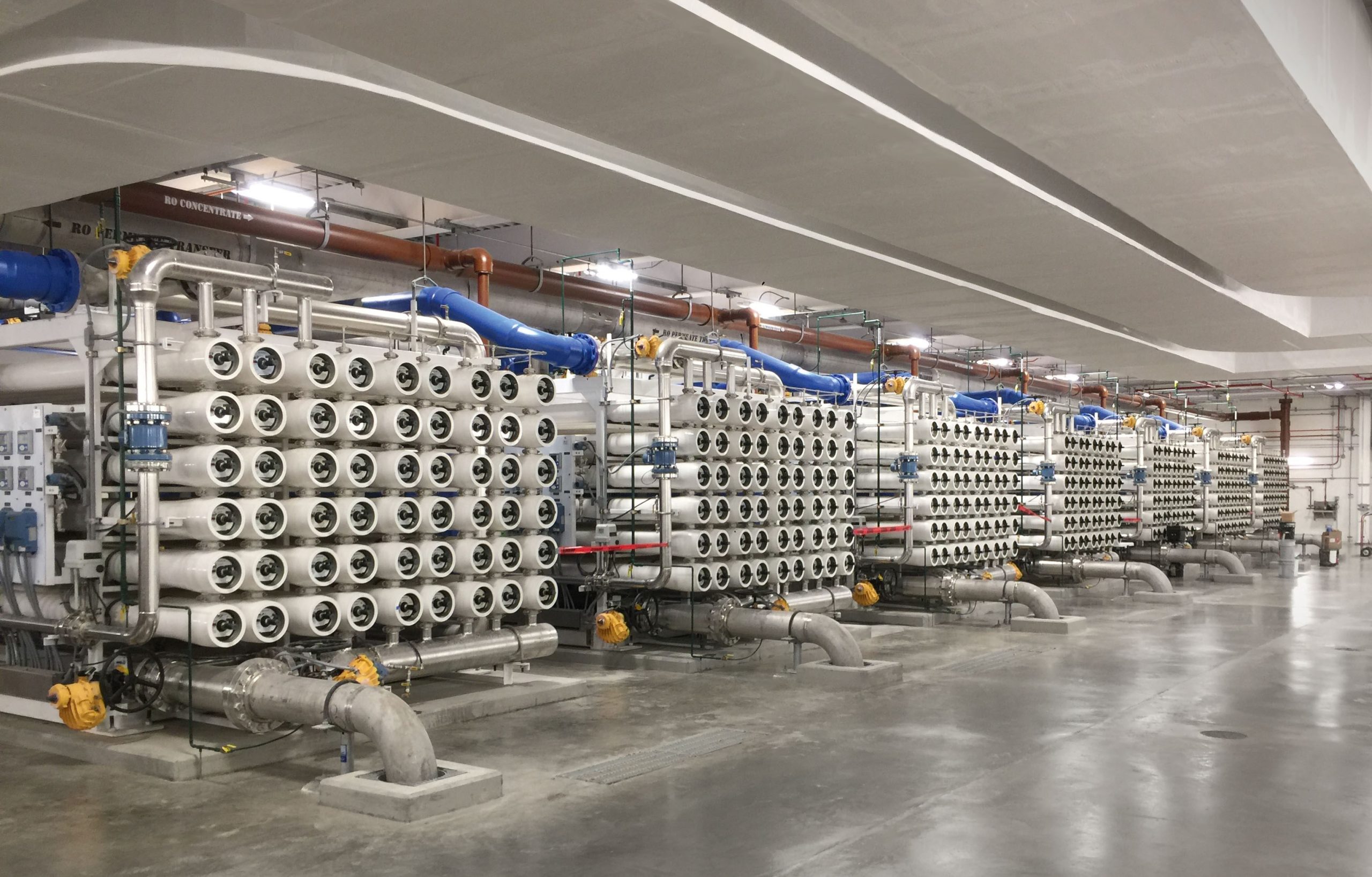Desalination is used particularly in regions facing water scarcity or where seawater is the only viable water source. Desalination plants utilise RO to produce freshwater for domestic, industrial, and agricultural purposes. Reverse osmosis desalination has witnessed remarkable advancements, making it a cost-effective and sustainable solution for coastal areas’ water supply.
Reverse osmosis plays a crucial role in purifying seawater in water treatment by effectively removing dissolved solids, salts, bacteria, viruses, and organic compounds, resulting in clean and potable water.
The reverse osmosis process operates on selective permeation, reversing the natural movement of molecules from regions of higher solute concentration to lower solute concentration. In RO, the feedwater is subjected to pressure greater than the osmotic pressure, enabling water to pass through the semi-permeable membrane. Meanwhile, most dissolved solids and contaminants are rejected and remain in the concentrated reject stream, creating brine.
Desalination is energy intensive. BW Water’s desalination designs also offer an energy recovery device to reduce energy consumption for this energy-intensive process.
BW Water’s experienced team coupled with our partners to design large-scale, fully automated, and competitive desalination systems to improve the environment by protecting the world’s most essential natural resource.
